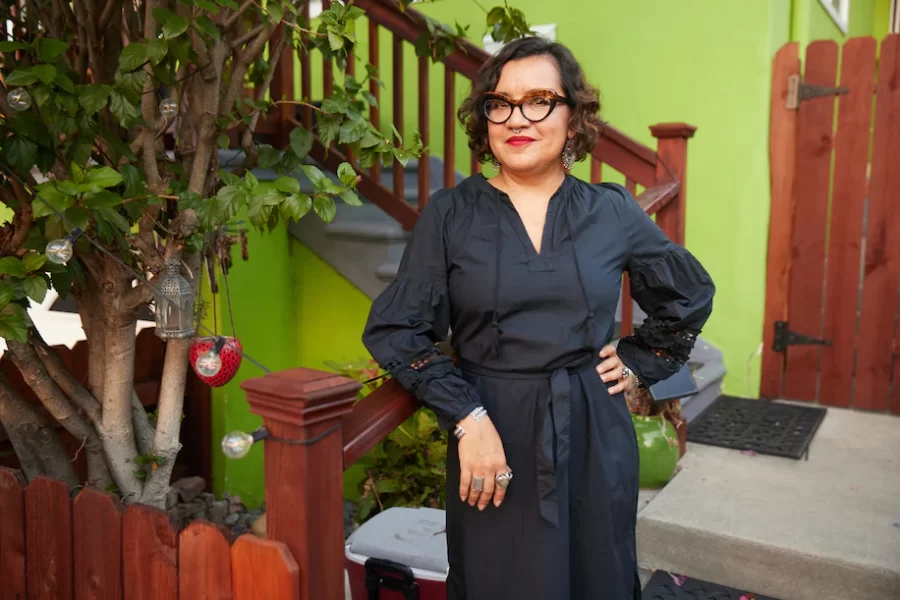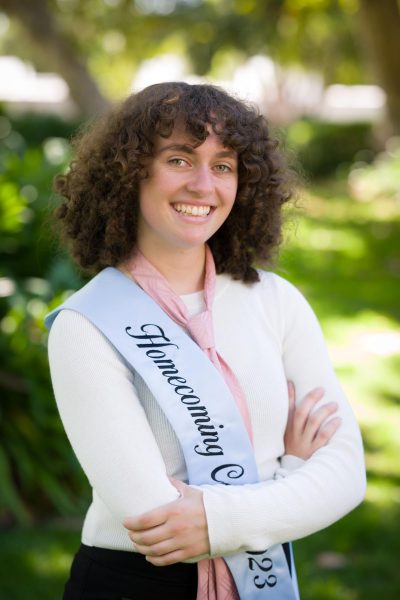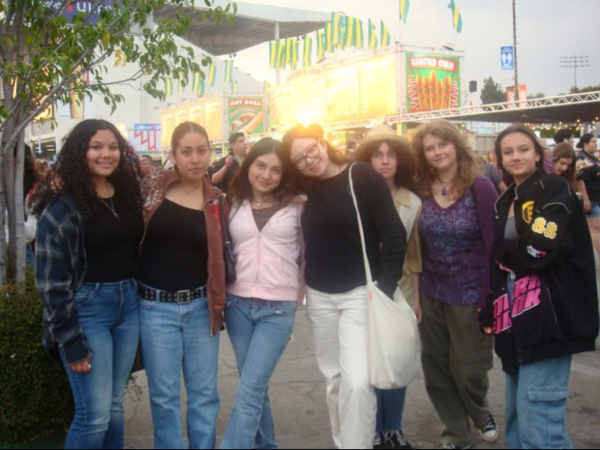Scripps professor named as recipient of 2022 MacArthur Fellowship
On October 12th, 2022, an email went out to Scripps faculty notifying them of a colleague’s achievements, and a wave of excitement sprang up. Professor Martha Gonzalez had just won a MacArthur Fellowship, one of the 25 selected recipients for the year of 2022. Congratulations rang throughout the halls, with students and professors alike talking about the occasion.
The MacArthur fellowship, often unofficially referred to as the “genius grant,” is an unrestricted $800,000 award paid over five years in quarterly installments for one’s exceptional creativity. It was created by the John D. and Catherine T. MacArthur Foundation, which began its fellowship program in 1978 and has continued ever since. Recipients of the award must be citizens or residents of the United States, but there is no age limit. Individuals are selected based on the creative potential they have and can unlock with the fellowship. With this process, individuals who are on the cusp of making great change for the world are given an opportunity to expand on their creative inclinations and work without restrictions.
“The 2022 MacArthur Fellows are architects of new modes of activism, artistic practice, and citizen science,” director of the MacArthur Fellows, Marlies Carruth, said in a published statement. “They are excavators uncovering what has been overlooked, undervalued, or poorly understood. They are archivists reminding us of what should survive.”
The selection process itself is highly confidential and relies on a network of hundreds anonymous nominators who suggest over 2,000 people per year for consideration. Those nominees are then evaluated and chosen by a small, undisclosed selection committee. Given these numbers, it is amazing that Gonzalez is one of the 25 grantees selected in the year of 2022, but a dive into her research quickly explains why she was awarded this “genius grant.”
Along with being an Associate Professor in the Intercollegiate Department of Chicanx-Latinx studies for Scripps College, Gonzalez is an active artivista (artist/activist) and a feminist music theorist in the musical community. Her focus of research in academia is on musicology and ethnomusicology, where she studies how Chicanx, Latinx, and other marginalized communities utilize music and other creative forms of expression as tools for social activism. As an artivista, Gonzalez brings groups of people together through music to stand up for people’s rights and liberate the oppressed from systems of power. In addition, Gonzalez is also the lead singer, songwriter, and percussionist for the 2013 Grammy Award-winning rock band Queztal, playing music in East L.A. that tells the stories of people in struggle. Her book, Chican@ Artivistas: Music, Community, and Transborder Tactics in East Los Angeles (2020) tells her own story as well as arguments for social justice through music.
“My favorite aspect of my work as a musician is collaborating with people,” Gonzalez said. “It is what keeps me grounded and connected to my own humanity, and the ways in which it relates to others.”
Indeed, on an average day, Gonzalez can be found working with many, many people — teaching music, gender, and ethnic studies as well as songwriting classes around campus, playing music with the band Quetzal, or participating in events for social activism around Los Angeles. At these events, people of any background are invited to dance, sing, and bond to a welcoming community that offers solidarity for social issues such as inclusion and identity. Gonzalez uses one form of dance and music in particular — fandango son jarocho, a type of dance in community fandango celebrations native to the state of Velacruz — to connect groups in Los Angeles and transnationally.
Gonzalez has utilized fandango in several different ways, including in the FandangObon project/festival, which brings together Mexican, Japanese, and African-American communities in Los Angeles together in a series of projects and celebrations. Every year since 2012, the band Quetzal has played in this festival, part of a project standing up for sustainability and equality by bringing communities together through music and dance. Gonzalez has been in the midst of it all, teaching through music.
This passion for music has led to the artivista’s recognition from the National Museum of American History as well as from the Fulbright, Ford, Woodrow Wilson, and now MacArthur Fellowships. When Gonzelez heard that she was chosen to be a MacArthur recipient — or as the MacArthur Foundation calls it, a MacFellow — by phone in her office about a month before it was announced to the world, she was shocked.
“I think I almost screamed and I said ‘No!’” Gonzalez said. “And then I was in disbelief, and then I cried a little bit, and I laughed a lot, and then I said ‘Wait a minute, no, oh my goodness, what, are you kidding me, is this a joke’ — all of that. I think I dropped a couple of f-bombs.”
The MacFellows are allowed to tell one person and one person only about receiving the award before the news breaks on October 12th, which the professor said was the worst part about hearing the news. Gonzalez chose to tell her husband and partner for life, Quetzal Flores, who — as what seems to be the usual reaction — was shocked at the news.
Although she had never thought that she would be one of the few MacArthur Fellows in the world, Gonzalez will continue to keep advocating for equality and work as a musician and a scholar. The MacArthur Fellow will keep doing what she has been doing, with or without the money from the foundation — although the occasion will feel a lot more real when she receives the first installment of the $800,000 grant in January. Her passion for music, activism, and work should not only be accredited to herself, but to her colleagues at Scripps College as well as the other communities and individuals who have helped her along her path.
To those wishing to follow in her footsteps in activism, research, or ethnomusicology, Gonzalez has a few words of wisdom.
“As a musician, when people think about music and success in music, success is often defined by an industry, which is oftentimes rooted in capitalist structures,” Gonzalez said. “But for me, once I started defining music and success in life on my own terms, that’s when things started to change. Define success for yourself, not on what you see on TV or the radio, but on what you think success is. I think defining success would be good for anybody in any field.”
Hello there! Our goal is to provide relavent, engaging journalism for readers of all ages. Your donation will support the student journalists of the Wolfpacket at Claremont High School, and will allow us to purchase equipment, print our monthly issues, and enter in journalism competitions. We appreciate your consideration!

Mayo Ou is the Head Editor-in-Chief of the Wolfpacket and a senior at CHS in her fourth year on the staff. Her goal this year, other than not procrastinating...









